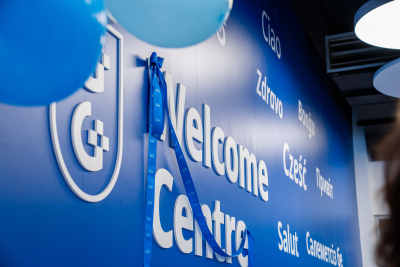The University of Gdańsk is one of the leaders of the Erasmus+ programme in Poland, as confirmed not only by the scale of its activities, but also by the funding it has received! The new Erasmus+ project for 2025-2027 has received almost PLN 13 million, which will finance student and staff mobility in the next two years. Today, the University of Gdańsk already implements nearly 1,500 mobility programmes per year, constantly developing its offer and responding to the needs of the academic community. The Erasmus+ programme is one of the foundations of the internationalisation of the University of Gdańsk, supporting the development of the academic community and building a European campus of the future.

Erasmus+ has been playing a key role in the internationalisation strategy of the University of Gdańsk for years. It is not only the most important European tool supporting academic mobility, but also a platform strengthening the development of competences and building the position of the University of Gdańsk as a modern and open European university.
We focus on quality - this is the priority of our mobility policy. The recruitment of staff for trips is carried out in a targeted manner: we primarily support mobility aimed at improving qualifications, building networks and developing teaching and research. The effects of this approach are visible: in the last cycle, the quality reports of our activities in Erasmus+ were rated at 92%.
We also support student mobility through a wide range of language courses to prepare them for their trips. This means that students going to partner universities are better prepared for studying and living in an international environment.
‘Erasmus+ is also a natural complement to our activities within the SEA-EU consortium of European Universities, a dynamic network of European coastal universities. Thanks to the synergy of both initiatives, the University of Gdańsk is successfully implementing new models of educational, research and administrative cooperation, responding very well to the dynamic trends of internationalisation in European higher education,’ says Vice-Rector for Cooperation and International Relations at the University of Gdańsk, dr hab. Anna Jurkowska-Zeidler, prof. UG.
A significant element of the offer are Blended Intensive Programmes (BIP) - short, intensive courses combining physical and virtual mobility. Their flexible formula perfectly meets the needs of today's students and employees, undoubtedly constituting a tool that fully fits into the realities of today's mobility and modern forms of teaching.
Integration and support of the international community at the University of Gdańsk is not only about mobility - the Welcome Centre also plays an important role. It is there, thanks to funds from the Erasmus+ programme, that numerous activities are carried out to support the adaptation of students and staff from abroad to their new academic and cultural environment. In addition to information and organisational meetings for mobility participants, regular yoga classes, dance workshops, mindfulness classes, intercultural competence workshops and integration meetings have been organised so far. The Welcome Centre is also a forum for cooperation between students and academic staff.
‘I cannot imagine the internationalisation of our university without the Erasmus+ programme. It is thanks to this programme that the University of Gdańsk is constantly changing and strengthening its position in the region, in the country and on the international arena,’ emphasises Magdalena Sawicz, director of the Cooperation and International Relations Office at the University of Gdańsk.
The commitment of faculty coordinators is of great importance for the quality of the programme at the University of Gdańsk, as it ensures that the exchange process runs smoothly and efficiently. The role of the Cooperation and International Relations Office team cannot be overestimated, as their daily work translates into the high quality and growing popularity of the programme.
